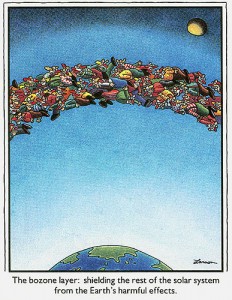Last night Attila and I watched a program about the history of Scotland. I was interested, many of my ancestors came to Canada from Scotland. My grandfather spoke with a mild Scottish accent, which I picked up and was ridiculed for at primary school.
The word history is a broad term, defined by the Oxford Dictionary in several ways. It seems that the new English meaning of the word is focused on “record of important or public events”. In the media these events seem always to be focused, in turn, on power, struggles for power, violence and violent death. When a book or a television program describes history, it is almost without fail a description of a very, very thin top layer of ambitious climbers. Seldom do I see descriptions of community building and strategies for human harmony; mostly I see long chronologies of wars, battles, political allegiances and betrayals. Certainly my high school history courses focused on these themes.
However, the origin of the word history offers more than this:
“Origin:
late Middle English (also as a verb): via Latin from Greek historia ‘finding out, narrative, history’, from histōr ‘learned, wise man”
This origin of the word history does not state or imply a focus on important and public events. The focus of interest in the “finding out”, in the creation of a narrative of human activity, is left to the discretion of the author.
Personally, I’m interested in the how the majority lived in times gone by. How did they survive the power plays, wars, economic greed and political strategies of their times. How did they go on with their daily lives despite the ravages of the ambition, greed and avarice of the minority? For most of us, that is the wisdom we can learn from the past.
“History”, as the word is used in education and the media, focuses on those who determine issues that affect whole populations. Today’s common wisdom in Western education and media tells us that we are the authors of our own individual destiny, that “life is what you make it”, that “you can be whatever you want to be”.
Talk about mixed messages. Who in their right mind would create a life of poverty, unemployment, underemployment, live in a war torn state or a violent neighborhood or go hungry?
I found the program on the history of Scotland interesting; a chronology of the thin layer of fools at the top, that shaped the structures, opportunities and limitations of daily life for the majority of humans in a particular time and place. What I wanted though, was to hear how the majority of people living at the time managed to survive such ravages.
I grew up around people who were very into the St. James version of the Bible, often called the King James Version, these individuals appointed Sainthood wherever they so chose. I often heard the phrase: “Blessed [are] the meek: for they shall inherit the earth.” This phrase has been discussed by many admired and noted men. As a child, what I thought it meant, was that those who lived in gentle harmony with their human and physical environment would endure, beyond the violence and machinations of those who “rose” through greed and ambition.
It seems to me this is a credible interpretation. For example, last night’s program described the “Picts” as disappearing from history at the same time that “Scotland” came into being, and that came about as a result of the “changing of the guard” in the high ranking positions, the Gaels replacing the Picts. The meek however, the majority of people living in the Picts’ lands, endured to live their unremarkable lives. Only one thin layer at the top was skimmed away to be replaced by another thin layer.
Paul, this entry is for you. God bless.
Worldly Distractions
Weather
2 °C
Condition: Mainly Sunny
Pressure: 100.8 kPa
Visibility: 16 km
Temperature: 2.0°C
Dewpoint: 2.0°C
Humidity: 100 %
Wind: NNW 11 km/h
Quote
